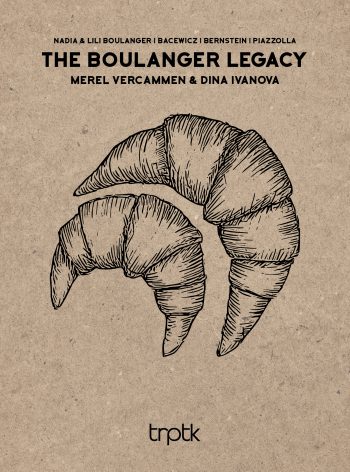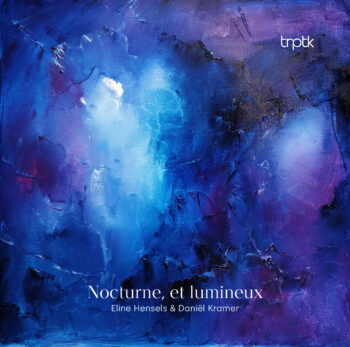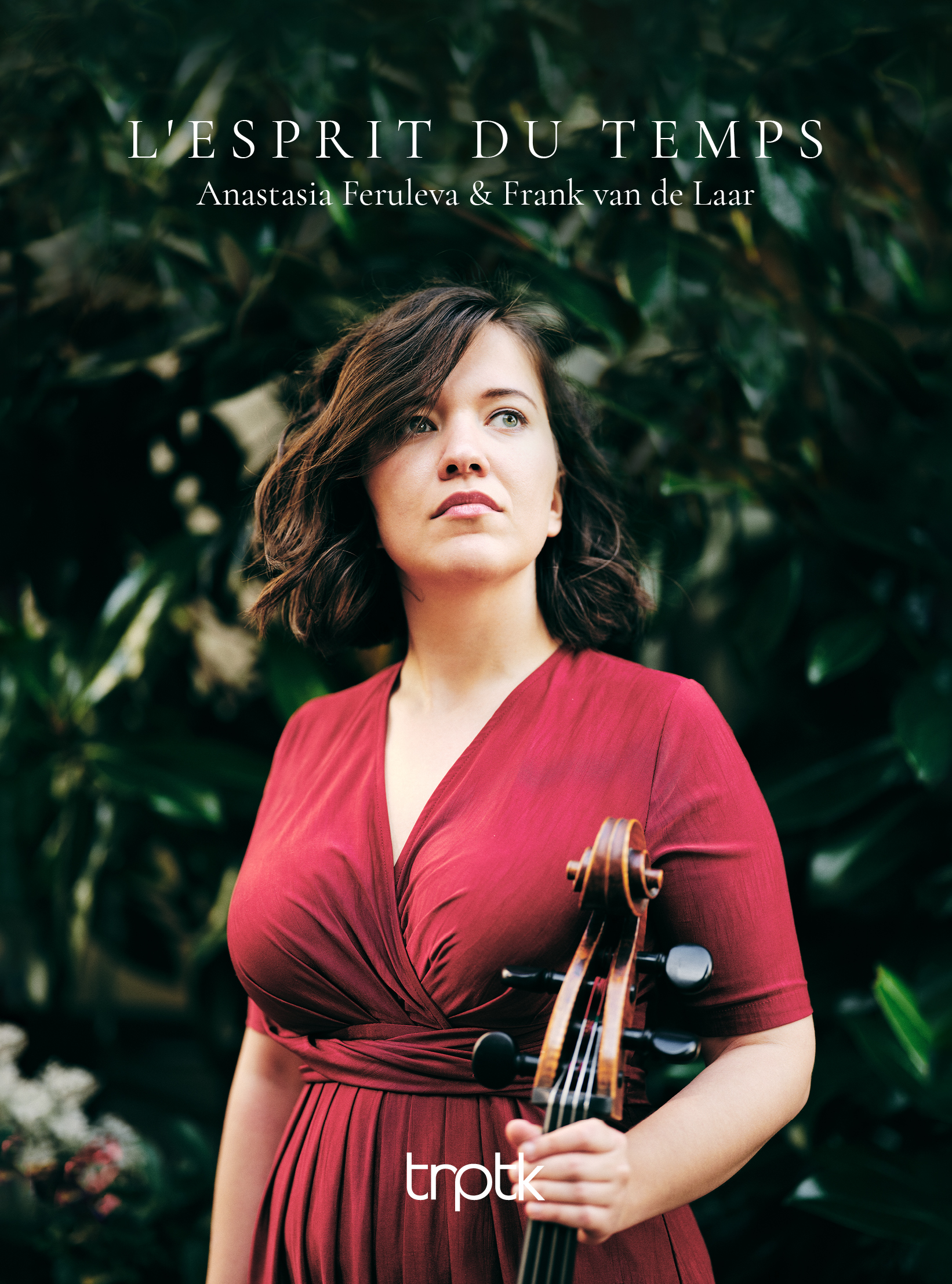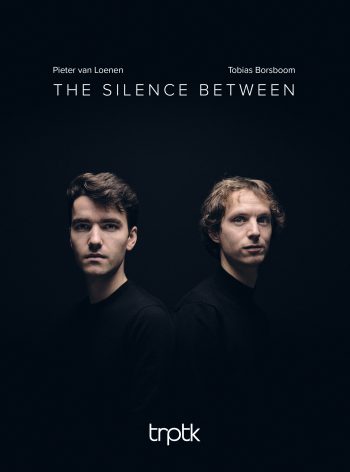Now that the whole world is literally and figuratively shaken up, we want to reach people with special music from a time in which everything was also at risk: the period after the First World War.
|
|
This title is available as:
About the album
Paris at the turn of the century. Against the background of the First World War, in the capital of the “Grande Nation”, a new “Zeitgeist” is born, a new “Esprit du temps”. A new era is dawning, with the Boulangers in the cultural forefront. This family of musicians enjoy an excellent reputation. Since the end of the 18th century, they have had a decisive influence on the cultural life of the French capital. Nadia and Lili Boulanger are born into this family. Their mother, Raissa Myshetskaya, is a singer of Russian origin, their father Ernest Boulanger active as a composer. The parental home is an open salon where actors, musicians, writers and painters meet. Friends of the family include Charles Gounod, Jules Massenet and Camille Saint-Saëns. The Boulanger siblings grow up in this environment. While Nadia will go on to be remembered as an influential music teacher, her younger sister Lili will rise to prominence as a composer. Following in her father’s footsteps, Lili wins the renowned “Grand Prix de Rome” in 1913 in composition, the first woman ever to do so. At that time, chronic bronchial pneumonia and Crohn’s disease, from which Lili suffers from birth, are already at an advanced stage. Only five years after her “Rome victory” Lili dies at the age of 24. Throughout their lives, the Boulanger sisters continue the family tradition of developing contacts with the artistic community, particularly after the sudden death of their father in April 1900. In a sense, Anastasia Feruleva and Frank van de Laar revive this “Salon Boulanger” on their CD.
Around 1901 Lili Boulanger starts taking composition classes with Gabriel Fauré, where she meets not only Charles Koechlin, Florent Schmitt and Maurice Ravel, but also George Enescu. Since 1895, this Romanian musician has been studying composition in Paris with, among others, Massenet and Fauré. Nadia Boulanger also moves in this circle, becoming Fauré’s deputy organist in the church of La Madeleine in 1903. When Igor Stravinsky starts working with Sergei Diaghilev and his “Ballets Russes” in Paris in 1909, a close friendship is born between him and Nadia. She will later go on to teach Stravinsky’s son.
This album picks up on this network of relationships, with Enescu’s Cello Sonata Op. 26 No. 2, a work far too seldom played, marking the starting point. “For quite some years we have been intensively engaged with this work, having often played it in concerts, and each time discovering something new,” Anastasia Feruleva and Frank van de Laar explain. “We would like to champion this sonata because we consider it a unique masterpiece of the 20th century cello literature. Unfortunately, it has been neglected in concert halls to this day, most probably because of the complex score and the enormous demands on ensemble playing. However, this music is so incredibly rich and deserves to be performed. We have put great thought into how this work could be combined with other repertoire to create a meaningful programme.” The final concept of the programme unites parallels and contrasts while also creating a concise narrative. This common thread is the retrospective, nostalgic but by no means backward in approach, through which early modernism treads new, independent paths. Essentially, this marks the new “Esprit du temps”. In the Second Cello Sonata of 1935, this retrospective appears not only in the simple personal sense, as evident through Enescu’s use of folk elements from his Romanian homeland in the rondo-like last movement, as well as in the Andante Cantabile. It goes beyond this, with the four-movement work following the classical form.
Tracklist click to play/pause
-
Igor Stravinsky
Suite italienne
-
I. Introduzione
2:092:09
-
II. Serenata
3:013:01
-
III. Aria
5:315:31
-
IV. Tarantella
2:232:23
-
V. Minuetto e finale
4:504:50
-
-
Lili Boulanger
D'un soir triste
9:469:46
-
Nadia Boulanger
Trois pièces
-
I. Modéré
2:452:45
-
II. Sans vitesse et à l'aise
1:221:22
-
III. Vite et nerveusement rythmé
2:322:32
-
-
George Enescu
Cello sonata No. 2, Op. 26
-
I. Allegro moderato ed amabile
9:139:13
-
II. Allegro agitato, non troppo mosso
5:435:43
-
III. Andantino cantabile, senza lentezza
6:376:37
-
IV. Final a la roumaine. Allegro sciolto
6:036:03
-
More information
| Weight | 100 g |
|---|---|
| Dimensions | 190 × 135 × 12 mm |
| Label | TRPTK |
| Genre(s) | Classical – Romantic (1830-1920) Classical – Contemporary (> 1920) |
| Artist(s) | Anastasia Feruleva Frank van de Laar |
| Composer(s) | Boulanger, Lili Boulanger, Nadia Enescu, George Stravinsky, Igor |
| Recording location(s) | Westvestkerk, Schiedam (NL) |
| Recording date(s) | August 2020 |
| Cat. No. | TTK 0060 |
|---|---|
| Release date |
February 26th, 2021 |
| Additional links |
"Two excellently attuned musicians crawl with head and heart into this sometimes extrovert, sometimes wonderfully rough earthy but also tranquil pastel-colored music in which folk and baroque music present themselves as a source of inspiration. Lyricism is a key word, in the music itself but also in the round, warm and relaxed playing of Anastasia Feruleva, in the often sparkling accompaniment of Frank van de Laar and in the recording, which pays attention to the smallest detail."
Marjolijn Sengers, Luister Magazine
"Feruleva sketches the inner contrasts of the first movement with great feeling and Van Laar handles the piano part quite subtly."
Jan de Kruijff, Musicalifeiten
"The duo's playing captivates with perfect coexistence of high intensity and intelligent phrasing."
Gerhard Anders, Das Orchester
"Much grandeur and expressive depth in these renditions by a perfectly matched duo who bring this delightful music to brilliant life with much panache. The equally brilliant recording frames this very positive picture. Superb!"
Aart van der Wal, Opus Klassiek
Related products
-

The Boulanger Legacy
Merel Vercammen
Dina IvanovaSACD
TTK0064 -

Nocturne, et lumineux
Eline Hensels
Daniël KramerSACD
TTK0114




